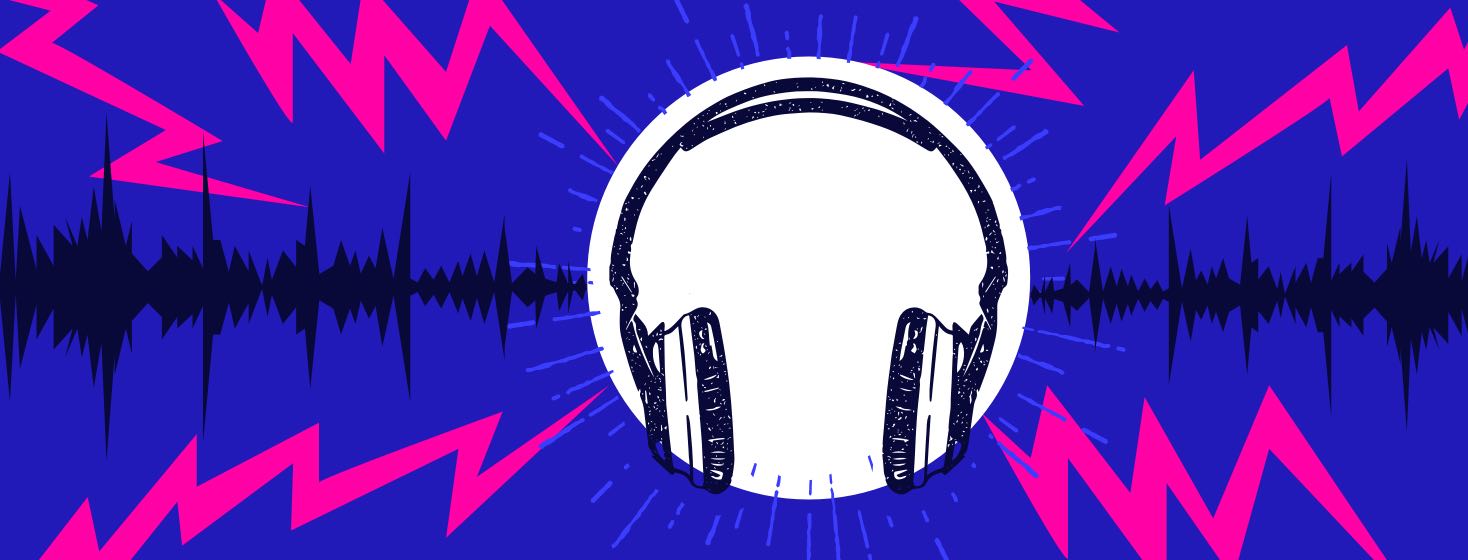Hiding from Sound
If you could go back to just before I was diagnosed with multiple sclerosis (MS) and ask me which of the 5 senses that I was born with was my favorite, I would have told you that it was my ability to hear. That’s not to say that I thought being able to hear was more important than being able to see (for example) because I definitely couldn’t ever imagine being blind. I just mean that my ability to perceive sound simply brought me so much joy, whether it was hearing music, the sound of someone’s voice, the soundtrack of a movie, or the subtle trickling of a small stream of water.
It was all so unique, and it often allowed me to just close my eyes and immerse myself in another world far away from all the problems of the one I live in. It offered me an escape. But, then MS came strolling in and found a way to make me wish, at times, that I couldn’t hear at all.
Stimulus-sensitive myoclonus
The first thing MS did to affect my relationship with acoustics was introduce me to myoclonus. Have you ever experienced a sleep start? You know, when you’re falling asleep and then you suddenly feel like you’re falling and your leg kicks, causing you to jump awake? That’s a myoclonic jerk, and there are all sorts of forms of myoclonus caused by different things. In my case, I experience “stimulus-sensitive myoclonus,” which just means that some kind of external stimuli like something moving, a change in light, or a sudden sound causes me to experience a myoclonic jerk.1,2
Basically, I jump like the audience in a movie theater watching a horror movie, except for me, all it really takes is for someone to walk into the room without me hearing and calmly say, “Hey, Matt.” And just like that, it feels like all the muscles in my chest, and sometimes even my arms, involuntarily contract.
Creating background noise for myself
The thing I found to work best at preventing this from happening was to actually avoid sound. But we live in a noisy world, so how realistic is it to hide from anything that could possibly make a sound? So, the next best thing was to save up some cash and buy some noise-canceling headphones so that I could turn them up and drown out the unexpected sounds of the world around me.
You see, volume isn’t really the issue; it’s the spike in volume that gets me. If I’m in a silent library and someone drops a pen on the floor, then that sudden difference between dead-silence and the drop of a pen is enough to “startle” me. So, by wearing headphones, I can make sure my ears are always receiving some sort of input so that if there is a sudden sound in the room, there isn’t a sudden difference in sound to me.
Random episodes of tinnitus
I later started experiencing random episodes of tinnitus (ringing in the ears). Sound from nowhere. This “ringing” didn’t last too long at first, but it was shockingly loud. I would be walking around just minding my own business when out of nowhere, a high-pitched hum would fill one of my ears, usually causing me to flinch as if someone had run up behind me and poked my ear with a stick.
Have you ever taken one of those hearing tests where you wear headphones and a high-pitched tone would play in one of the speakers, and you would have to indicate whether you heard it in your left or right ear? My tinnitus would remind me of that! That sound! Like I am walking around with those headphones on every day, and they would randomly play that high-pitched tone in one of my ears.
Earplugs made my tinnitus worse
Eventually, tinnitus would start to strike more often and became more of a roaring rumble that lasted much longer. I especially noticed this when I tried taking a break from going to bed with my headphones on and instead tried wearing earplugs. At first, I thought I might have put them too deep into my ears, but when I still heard the tinnitus after I barely even put them in, I knew it wasn’t that. I assume my tinnitus “got worse” when I wore earplugs because wearing earplugs was like sitting in that silent library. There was nothing to drown out the sound of that terrible ringing, so it seemed to be even louder! Now I use a white noise machine every night to help drown out that sound.
Hiding from sound within other sounds
With all that said, I still love sound. I love music, listening to someone tell a story, and even weird electronic noises. But I sort of feel like listening to any of those things now is like how I can still walk, but because of MS, I just can’t walk how I used to. When I walk, I am always aware, with every step that I take, that I have MS. Now it’s kind of like that with sound. I am almost always aware, by hearing the world the way I hear it now, that I have MS.
The sound of music can still offer me an escape from the world when everything is just right, but mostly? In order to drown out all the noise of life and the noise caused by circuitry issues in my demyelinated brain, I have to hide from sound inside other sounds, and that can get old really quick.

Join the conversation